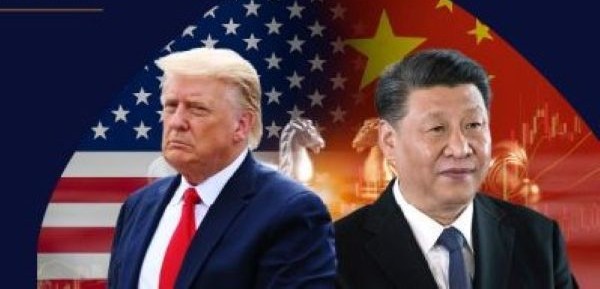(4 Minutes Read)
Africa, especially Sub-Saharan Africa, suffers from underdeveloped manufacturing, making it overtly reliant on exporting raw materials like oil and minerals, only to import costly refined products. Despite promises of local industrial growth, such as Nigeria’s Dangote refinery, progress is slow. Foreign powers dominate existing industries, pushing their interests. To reverse this trend, Africa must prioritise industrialisation and embrace a ‘Africa First’ approach, leveraging initiatives like AfCFTA to assert economic independence.
Uncertainty on the tariff war continues with the changing goal posts. The reprieve of 90 days for the imposition of the tariff, except for China, might have come as a pleasant surprise to most countries. Now, a few trade analysts are doubting whether the tariff will be imposed at all at the rates it was announced. Importantly, it has two parts: one, a 10% increase across the board for all merchandise goods from all countries (Mexico and Canada excluded) and an increase in retaliatory tariff for select countries at different rates, which is now paused for 90 days.
Between now and the 90 days, many things can happen. Hints are subtle when Trump himself says that many countries have approached him for bilateral talks. This is why the Trump Administration wants to make the global trade regulator, WTO, irrelevant. Amidst the cacophony of big talk and assertions, there is a nagging feeling that the US Administration is seemingly concerned about the doomsday predictions of its industry leaders about the looming recession.
Will Trump change the narrative as days roll by? One cannot predict as of now since things are still fluid. Certain indicators are suggestive of a possible change of mind in some of the segments. For instance, only the other day, there was a report from the Associated Press from Washington that the Trump Administration may exclude some electronics goods from reciprocal tariff, including from China, from where it sources 90% of its electronics hardware requirements. Bulk drugs from India also may get a reprieve. By rolling over AGOA, agricultural goods imported from Africa can also enjoy that status.
The US Customs and Border Protection said that items such as smartphones, laptops, hard drives, and some chips, along with machines used for making them, will be excluded not only from the 145% tariff(as on 15April) levied on Chinese imports but also even the 10% base line tariffs will be waived. Does it mean the US is concerned about where the shoe pinches? One has to believe so, given the array of reversals carried out from the earlier announcements.
What is the takeaway for Africa in this context? Our platforms- www.trendsnafrica.com and Africa4U- have been vocal about the ideal course of action for the African continent. The continent should strike when the iron is hot. It should not be lured away by a few doles given here or there and divisive geopolitical accommodative games played by its so-called benefactors, the US or China. Beneath the veneer of their concern and overreach, there is a self-interest hidden.
The most vulnerable spot for the African countries, particularly Sub-Saharan Africa, is the minimal presence of the manufacturing sector. The US and China import crude oil from oil-producing countries in Africa to refine it and resell to the countries in the continent at a premium price. The spread between the prices of crude and refined oil sometimes works out to exorbitant ranges. It is a sad commentary, to say the least, that this trend continues unabated, despite the promise of setting up a string of refineries in the continent. Aliko Dangote’s oil refinery in Nigeria missed many targets for commissioning and reports suggest that its full swing operation will take time.
Oil is not the only primary product that is traded at a disadvantage. There are products like cocoa, lithium, cobalt, silica, aluminum, iron, and steel etc., which also face the same dilemma. Industrialization in Africa is given the least importance. Those manufacturing units that are coming up are mostly operated by foreign companies, either from the US, EU, or China, who have their agenda. It is high time that the continent coined a phrase, Africa First, a counter to America First or China’s Expansionary Syndrome to assert its rightful position in manufacturing. The free trade concept embedded in the AfCFTA sets the tone for working towards such a goal, which many feel even now is a non-starter.
The Trump tariff camouflages some factors. The most obvious among them is services trade since the retaliatory tariff is levied only on merchandise trade, leaving services trade beyond tariff ambit. Cleverly, the US preempts a comparison of total trade (merchandise and services trade). Trade analysts feel that the trade deficits against the US, as claimed by the Trump Administration, can be countered by combining trade under both heads. The reach of the US media and influence is such that realities can buried and blurred.





